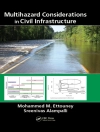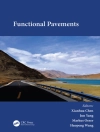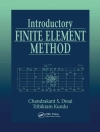Agricultural biostimulants are a group of substances or microorganisms, based on natural resources, that are applied to plants or soils to improve nutrient uptake and plant growth, and provide better tolerance to various stresses. Their function is to stimulate the natural processes of plants, or to enrich the soil microbiome to improve plant growth, nutrition, abiotic and/or biotic stress tolerance, yield and quality of crop plants. Interest in plant biostimulants has been on the rise over the past 10 years, driven by the growing interest of researchers and farmers in environmentally-friendly tools for improved crop performance.
Focusing on recent progress on biostimulants and their role in crop production and agricultural sustainability, this book includes:
31 chapters on a wide range of biostimulants and their role in plant growth stimulation and stress tolerance.
Mechanism of actions of diverse groups of biostimulants, such as trace elements, plant and seaweed extracts, humic substances, polyamines, osmolytes, vitamins, nanoparticles and microorganisms.
New promising biostimulants with novel modes of action.
Improved crop production technologies are urgently needed to meet the growing demand for food for the ever-increasing global population by addressing the impacts of changing climate on agriculture. This book is of interest to researchers in agriculture, agronomy, crop and plant science, soil science and environmental science.
Om författaren
Dr. Masayuki Fujita is Professor in the Laboratory of Plant Stress Responses, Faculty of Agriculture, Kagawa University, Kagawa, Japan. He received his B.Sc. in Chemistry from Shizuoka University, Shizuoka, and M.Agr. and Ph.D. in plant biochemistry from Nagoya University, Nagoya, Japan. His research interests include physiological, biochemical, and molecular biological responses based on secondary metabolism in plants under various abiotic and biotic stresses; phytoalexin, cytochrome P450, glutathione S-transferase, and phytochelatin; and redox reaction and antioxidants. In the last decade, his works were focused on oxidative stress and antioxidant defense in plants under environmental stress. His group investigates the role of different exogenous protectants in enhancing antioxidant defense and methylglyoxal detoxification systems in plants. He has supervised 4 M.S. students and 13 Ph D students as the main supervisor. He has about 150 publications in journal and books and has edited 10 books.












